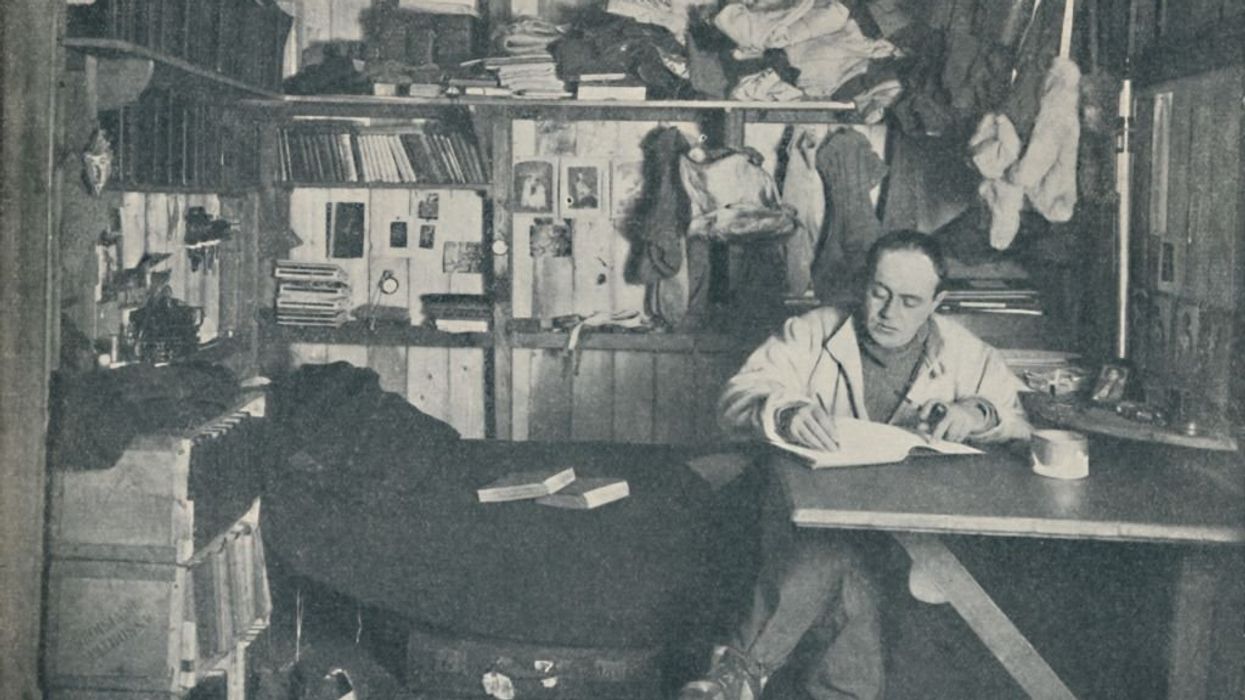
© 2024 Blaze Media LLC. All rights reserved.
Director of Taylor Swift's Africa Music Video Fires Back at Critics Who Wanted More Black Actors
September 02, 2015
"The reality is..."
The director of Taylor Swift's new "Wildest Dreams" music video fired back Wednesday at critics who skewered the work for supposedly advancing stereotypes of white colonialism.
The video, filmed in Africa and directed by the acclaimed Joseph Kahn, was released before the VMAs Sunday night and aims to tell a love story set in the 1950s.
Set against a backdrop of wild animals, the video has already been viewed more than 16 million times on YouTube. All the proceeds are being donated to the African Parks Foundation of America.
That, however, hasn't stopped critics from blasting the video for alleged racism since it mostly features white actors. One headline read, "Taylor Swift Went To Africa To Film A Music Video And There’s Only White People In It."
Kahn decided to release a statement Wednesday responding in full to the criticism. In it, he noted that placing more black actors on set would have been historically inaccurate. Kahn also added that the "key creatives" in the video were black themselves.
Here's the statement:
“Wildest Dreams” is a song about a relationship that was doomed, and the music video concept was that they were having a love affair on location away from their normal lives. This is not a video about colonialism but a love story on the set of a period film crew in Africa,1950.There are black Africans in the video in a number of shots, but I rarely cut to crew faces outside of the director as the vast majority of screentime is Taylor and Scott.
The video is based on classic Hollywood romances like Elizabeth Taylor and Richard Burton, as well as classic movies like The African Queen, Out of Africa and The English Patient, to name a few.
The reality is not only were there people of color in the video, but the key creatives who worked on this video are people of color. I am Asian American, the producer Jil Hardin is an African American woman, and the editor Chancler Haynes is an African American man. We cast and edited this video. We collectively decided it would have been historicially inaccurate to load the crew with more black actors as the video would have been accused of rewriting history. This video is set in the past by a crew set in the present and we are all proud of our work.
There is no political agenda in the video. Our only goal was to tell a tragic love story in classic Hollywood iconography. Furthermore, this video has been singled out, yet there have been many music videos depicting Africa. These videos have traditionally not been lessons in African history. Let’s not forget, Taylor has chosen to donate all of her proceeds from this video to the African Parks Foundation to preserve the endangered animals of the continent and support the economies of local African people.
You can watch the music video here:
—
Follow the author of this story on Twitter and Facebook:
Want to leave a tip?
We answer to you. Help keep our content free of advertisers and big tech censorship by leaving a tip today.
Want to join the conversation?
Already a subscriber?
more stories
Sign up for the Blaze newsletter
By signing up, you agree to our Privacy Policy and Terms of Use, and agree to receive content that may sometimes include advertisements. You may opt out at any time.
© 2024 Blaze Media LLC. All rights reserved.
Get the stories that matter most delivered directly to your inbox.
By signing up, you agree to our Privacy Policy and Terms of Use, and agree to receive content that may sometimes include advertisements. You may opt out at any time.



